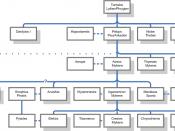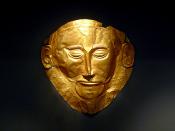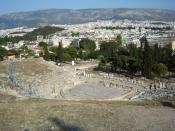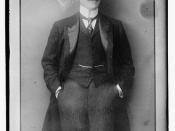Reasons Why Teachers Shouldn?t Force Students to Study Agamemnon To inflict someone?s will upon another person is morally and ethically wrong. For example, there was an incident during the 30?s and 40?s where one man?s spirit bestowed itself on the behalf of many. Some inconsiderately call this the Holocaust. An atrocity such as this cannot be satisfying and cannot emphatically be forgotten. Nor should a referral to decipher an insipid, sluggish, antiquated story about one family?s journey though a quarrelsome era. No compassionate instructor should teach Agamemnon. Agamemnon is a laborious play written by the caustic character commonly known as Aeschylus. There are reasons for the abhorrence. It is boorish, it does not fit Aristotle?s definition of tragedy nor does it fit his six elements. It is contrived, and it serves no purpose in the actor?s repertory. It is the bane of theatrical history students everywhere, and therefore the work should burn in the fiery inferno of hell with Adolph Hitler.
There is a general outcry among students asking why. ?Why do we have to read this banal play?? Well friends, here is the answer.
The theater teachers secretly want to torture us. There is a secret plot to make all of their pupils use their books as pillows. It may be hard to believe at first, but over time, everyone will some to realize the fact that every theater instructor has a veiled agenda. It is easy to see this fact if one were to look at the alarming rate of homework that most professors assign on a weekly basis.
Take any class by anyone at any school. Tests, quizzes, written assignments, reading assignments, and actual thinking come to mind when one thinks of the absurdity of this teaching technique. Amazingly, they fit it all into one ten week session. Yet the classes are consistently intriguing. So how are students to even begin to read one play a week, let alone one that makes a person lose interest faster than a political convention for Strom Thurman? The answer is simple: the pupils are not going to do the assignment. The Orestia is far too annoying for the busy collegiate intellectual. It is under powering with is verbose, and trite with its tone.
Aristotle?s definition of tragedy as described in his Poetics functions as follows, ?Tragedy is an imitation of an action? leading to pity? ending in catharsis.? A thorough reading of the play implies no pity for any character, and very little catharsis for a select few individuals. Under Aristotle?s prescribed definition, this play classifies itself as a tragedy for no reason other than the moot point that people die. This is tragic however, since few people care whether the characters of the play will survive or better yet, cease to live. There can be great indifference if there is a weak plot. The chorus of the play gives the plot mainly through a berating narrative. Through this medium of narration through a limited third person, it leaves little room to dabble in the fine art of arranging a sequence of events to tell a story. The play ends with a sentiment of being whelmed. It is not overwhelming, and it is not underwhenming, it merely whelms.
There are a few crises? in Agamemnon. In order to win the war, the ?tragic hero? Agamemnon (who is relegated to only a few pages of dialogue, although he is the sole owner of the plays title) sacrifices his daughter. At first glance, this looks like a catastrophe in the making. However, his intentions are just. He wants to win a war for the people. Next, against his will, he walked on the tapestries that others laid before him. A blasphemous act, but he originally objected. He raped, burned, and pillaged Troy. This has no retribution; for this, he should be punished. Agamemnon also killed his brother?s babies, and then proceeded to feed the babies to that same brother (sounds like a bit of omphagia). Together, these atrocious events appear catastrophic, worthy of the god?s wrath pulling from the cosmic level. However, Aeschylus failed to integrate them properly and the ultimate outcome is a sleepy reader.
Not only does it not fit Aristotle?s definition of tragedy, but Agamemnon also fails to make it under his six elements of tragedy. The plays plot is weak at best, the characters offer no real connection, the language is convoluted, the thought and ideas are engineered, the visual aspects depend solely on the vision and thoughts of the director, and the music or melodies delay.
This play does not give actors the respect that most of them rightly deserve while performing a play. Actors are supposed to find the action within the dialogue. To find this, an actor must look at the text and evaluate the situation. The action is slow, and the situation is bleak. These two points do not immediately rule out any play from being a great work, but without pity for the character, the art of acting is likely to appear manufactured. Think of the unfortunate ephebes that subjected themselves to this torture. Apparently, they did not suffer enough, so they forced themselves to this death.
It is fantastic that Aeschylus was the first person to introduce the idea of the second actor, but this deliberation should not occur at the expense of the ?tragedy? as a whole. As long as there are instructors of theater who continue to degrade students by forcing their will to like the Orestia, then there will continue to be disputes from scholars. It is hard to pity characters that are fearless. It is hard to enjoy an ancient Hellenic play that does not end in catharsis. It is hard to stay awake while reading this play. Trying to do any one of these responsibilities is like trying to squeeze water from a rock, or like trying to squeeze a five-page paper from a somnolent university student. To liken the Holocaust to a reading of Agamemnon is not that far off base. To assume that all theater students are at fault if they do not agree that it is a literary classic would be inconsiderate. When the anagnorisis that Agamemnon may not be as great as most theatrical lecturers assume is deciphered, true teaching can emerge. The discussion may ramble on forever for who came first, the wicked or the young of age. The only viable solution for this peripetia is to cease and desist with the instruction of this wretched play known solely as Agamemnon.





